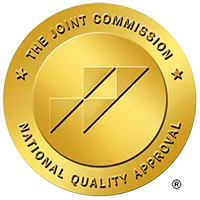For many folks, including myself, ‘the spiritual’ aspects of recovery can be a challenge. We tend to show up with a truckload of old ideas in this area and a lot of us consider ourselves to be atheists.
In this writing we will look at alternative ways to approach this often-confusing subject.
What is Spiritual?
I was almost ten years clean and sober when I began working with a new sponsor, an old-timer named John H. At our first meetings, over coffee in a greasy diner, he asked me a very simple question: “what does the word ‘spiritual’ mean to you?”
I was fully loaded for this question. I was born Jewish and had studied both the Old and New Testament. I had been practicing meditation for almost 20 years and had read countless books on Eastern religion and thought. I had studied Emmett Fox, The Course in Miracles and was a card-carrying member of the Self-Realization Fellowship (originated by Paramahansa Yogananda). I proceeded to give John a discourse about the human ego, transcendence, and the Oneness of all things.
John listened patiently until I was done. He then offered his definition of the word ‘spiritual’. He said, “spiritual simply refers to that which is not material. This means those things that are not solid- such as our thoughts, our beliefs, our emotions- are what is spiritual. When we say that alcoholism or drug addiction is ‘a spiritual malady’, it means that our disease in centered in these things (thoughts, beliefs, emotions).
This simplification has been very helpful to me. I could identify when he went on to say, “the spiritual malady refers to a derangement of our thoughts, beliefs, and emotions. These things are out of whack and not aligned.“ The process of recovery is useful to remedy this problem.
What About God?
The word ‘God’ can be a total turn-off for many of us. It is loaded with old ideas and religiosity, tainted by overuse, abuse, and centuries of bad press. It is sad that countless addicts and alcoholics have rejected 12 Step recovery because the G_d word is up on the wall and included in prayers and literature.
I struggled with this myself in the early days of my recovery. It was one more thing that my disease used to separate me from other folks in the rooms of recovery, another way to feel unique.
Conveniently, I overlooked the words ‘God as you understand Him (or Her’) ingeniously included in the steps.
A turning point for me was when I heard an AA speaker named Wayne B. who said that we actually have 3 G.O.D.s in the program of recovery to help us stay clean and sober:
- O.D.- Group Of Drunks (the fellowship)
- O.D.- Good Orderly Direction (the program of recovery)
- O.D.- the individual’s own concept of a higher power.
I especially came to see the importance of Good Orderly Direction- something sadly lacking when I was using and drinking. The steps and the ‘design for living’ in the AA Big Book provided this for me and has contributed to over 3 decades of sobriety and constructive living,
Additionally, I could see Good Orderly Direction all around me- specifically in the workings of nature. This observation has convinced me of its importance in all of life.
Conclusion
The spiritual aspects of recovery and the ‘God word’ can be an obstacle for many new folks trying to get sober. Hopefully the ideas included in this short writing show that there are many ways to approach these topics.
When I accepted that the ‘spiritual malady’ was about my beliefs, thoughts, and emotions, I came to see that many of my own beliefs and thoughts on this subject were contributing to my disease. I had many old ideas and prejudices that had to be examined and released.
I am aware that there are many paths to recovery- my path has been the 12-Steps. While this may not be for everybody, the principles contained within the steps and the program are applicable and useful to anyone seeking sobriety and recovery.




